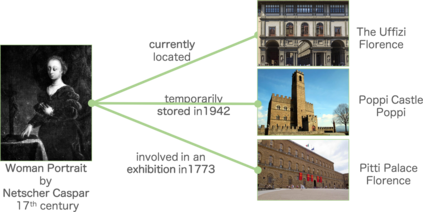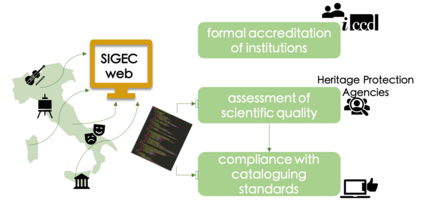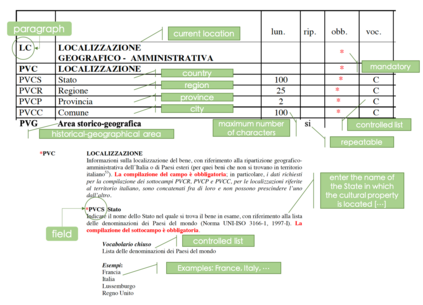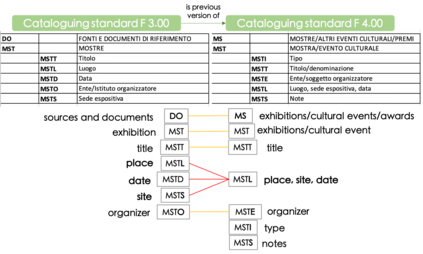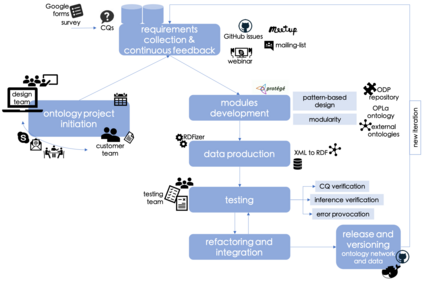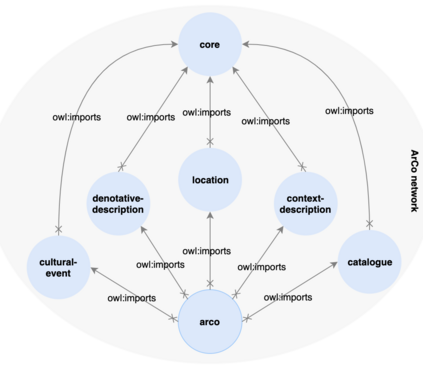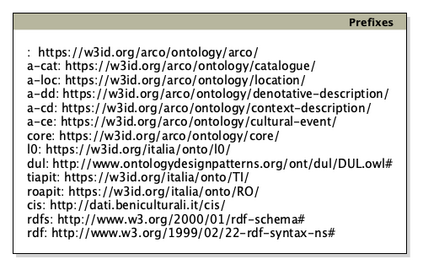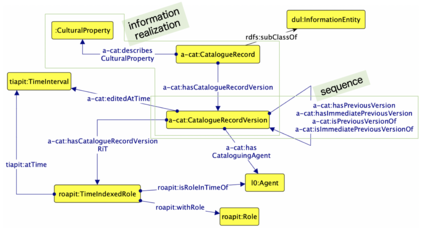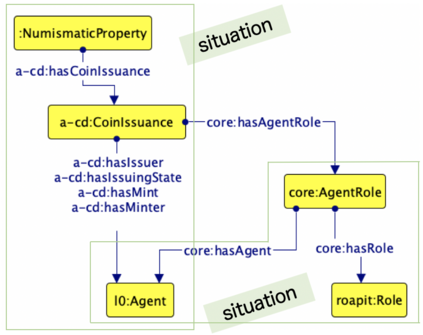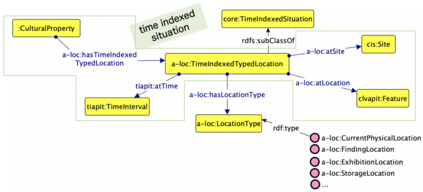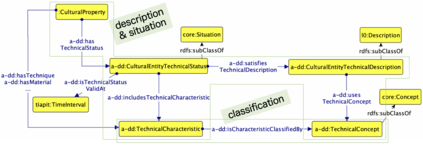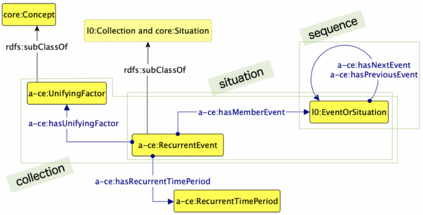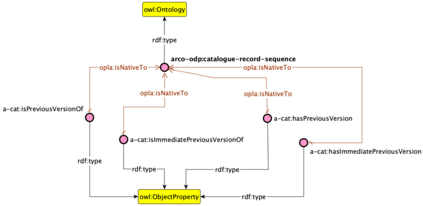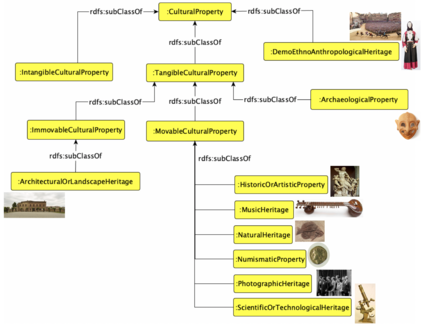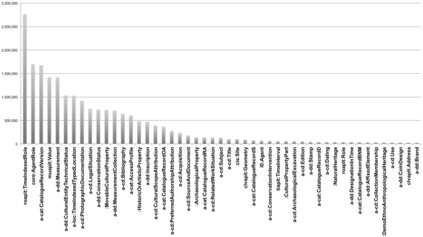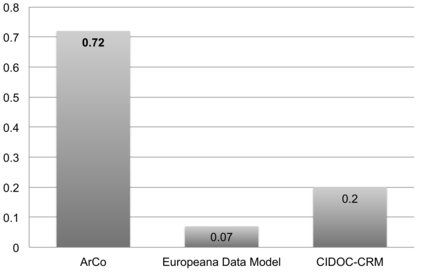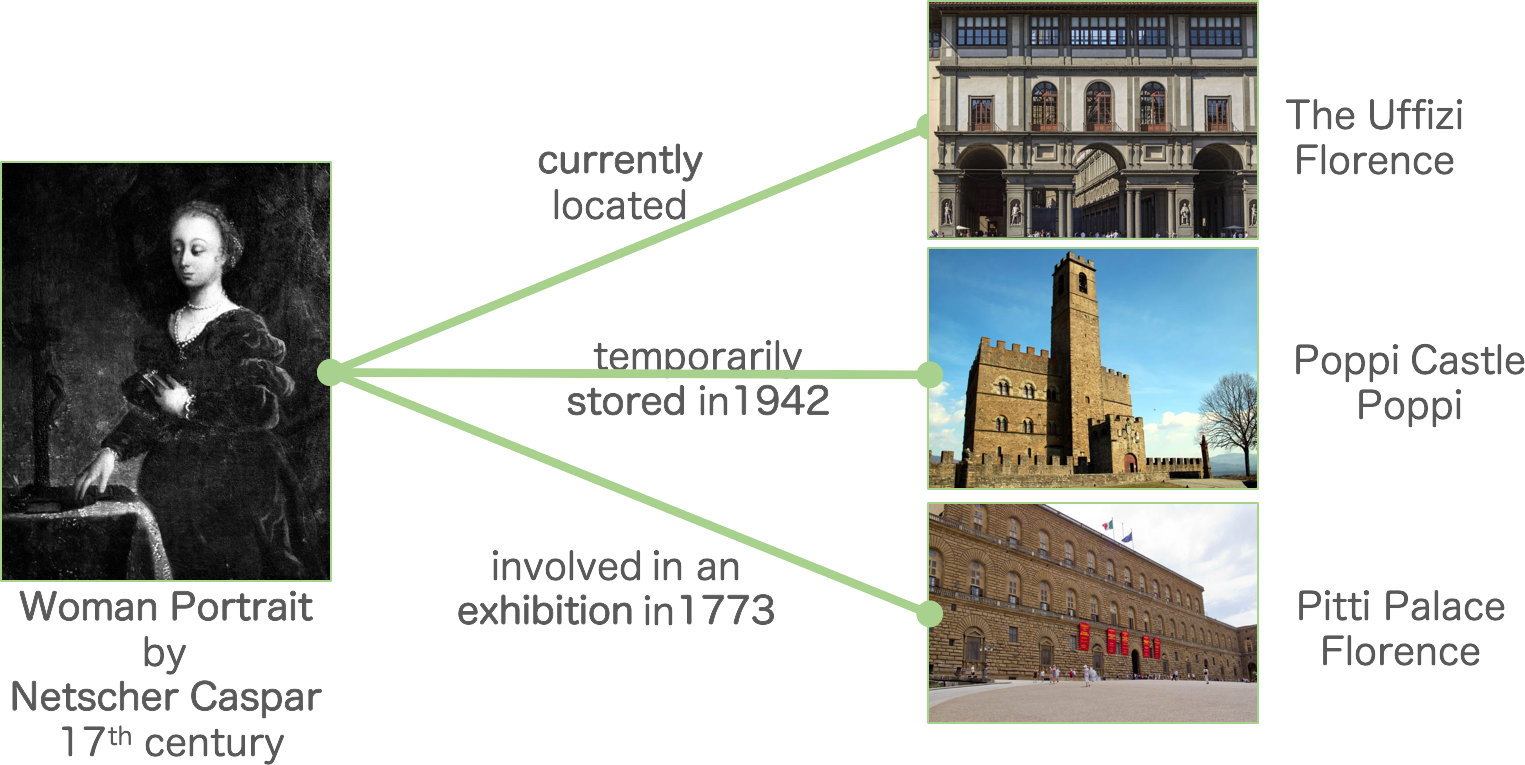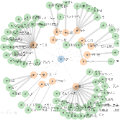Ontology Design Patterns (ODPs) have become an established and recognised practice for guaranteeing good quality ontology engineering. There are several ODP repositories where ODPs are shared as well as ontology design methodologies recommending their reuse. Performing rigorous testing is recommended as well for supporting ontology maintenance and validating the resulting resource against its motivating requirements. Nevertheless, it is less than straightforward to find guidelines on how to apply such methodologies for developing domain-specific knowledge graphs. ArCo is the knowledge graph of Italian Cultural Heritage and has been developed by using eXtreme Design (XD), an ODP- and test-driven methodology. During its development, XD has been adapted to the need of the CH domain e.g. gathering requirements from an open, diverse community of consumers, a new ODP has been defined and many have been specialised to address specific CH requirements. This paper presents ArCo and describes how to apply XD to the development and validation of a CH knowledge graph, also detailing the (intellectual) process implemented for matching the encountered modelling problems to ODPs. Relevant contributions also include a novel web tool for supporting unit-testing of knowledge graphs, a rigorous evaluation of ArCo, and a discussion of methodological lessons learned during ArCo development.
翻译:240. 已经建议进行严格的测试,以及支持本体学的维护,并根据激励要求验证由此产生的资源。然而,找到关于如何应用这种方法开发特定领域知识图的指导准则并不那么简单,而这是意大利文化遗产的知识图,是利用eXtreme Design (XD),一种由ODP和测试驱动的方法开发的。在开发过程中,XD已经适应了CH领域的需求,例如,从开放的、多样化的消费者群体收集要求,确定了一个新的ODP,并专门针对特定CH的要求。本文件介绍了ArCo, 并介绍了如何将XD应用于开发与验证一种特定领域知识图,还详细说明了为将遇到的模拟问题与ODP相匹配而实施的(智能)程序。相关的贡献还包括支持单位测试所学的Argroma学和ARC的严格评估。

